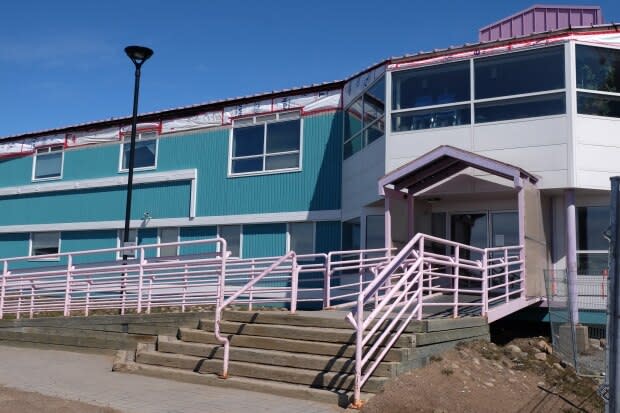Nunavut Arctic College students head back to classrooms soon, COVID-19 restrictions in place
Nunavut Arctic College students are set to be back in classrooms this coming term — with physical distancing.
On Tuesday, the college released its four stage COVID-19 reopening plan for the school year, which starts Sept. 8. The plan is similar to the government of Nunavut's reopening plan for grade schools as it outlines how the college will operate based on a community's risk to COVID-19.
Nunavut is the only jurisdiction in Canada to not have a confirmed case of COVID-19.
The plan says "most programs have opted for a smaller class intake, in order to ensure physical distancing within classrooms and facilities."
Stage one of the plan outlines the current scenario, where there is no COVID-19 in the community or in other communities in the region.
This is the least restrictive stage and students will be able to go to class but will be spaced two meters apart. Students will have designated classrooms and assigned seating.
The public will have access to all four of the college's campuses in this stage. Most students are located in Rankin Inlet, Iqaluit, and Cambridge Bay.
The general public will have to sign in when they enter a campus in order to better conduct contact tracing incase of a case of COVID-19.
Nunavut Arctic College also has 25 community learning centres, which are individual buildings that run programs with at least one adult educator and a custodian.
Community learning centres will have physically distanced seating but will be open to the public, students and staff.
Libraries, computer labs and the cafeterias will be open to the public at 50 per cent capacity. College students and staff will have full access.
Student residences will also be open to the public in stage one, but will need to sign in in order to better conduct contact tracing.
Stage two happens when there is no confirmed case of COVID-19 a community but someone in the community has been in contact with a case in another community.
In this case students will have flexible attendance depending on mandatory self-isolation and Dr. Michael Patterson, the chief public health officer will make recommendations on seating distance in classrooms, says the plan.
Most college facilities will be accessible in this stage to students and staff, but public access will be restricted.

Libraries and computer labs will still be open to the public at 50 per cent capacity. The cafeteria will be takeout only for the public.
Student residence will also be off limits to the public.
In the event of one or more active cases
Stage three is a recovery stage from a case of COVID-19 and comes after stage four.
Stage four is a closure of most college facilities because of a confirmed case of COVID-19 in a community.
Programs for campuses and community learning centres would have "alternative delivery methods where possible." The plan doesn't detail if classes would go online in this case, but does say after the closure of the college last spring, not all programs were "conducive" to online or blended learning.
These programs are the college's trades programs like metal work or fur production.
Stage three is when a community is in recovery from COVID-19 and there is no more evidence of community transmission.
Campuses and community learning centres would start to open back up to students and staff.
Libraries and computer labs would only be accessible to students and staff in stage three.
Cafeterias would have no public access and will be takeout only for students and staff.
Student residence would have no public access and no access to external family members.
All stages call for enhanced cleaning measures and currently does not have any directives on wearing masks.
However, a spokesperson for the college says the college's practices will be updated at the advice of the chief public health officer.

